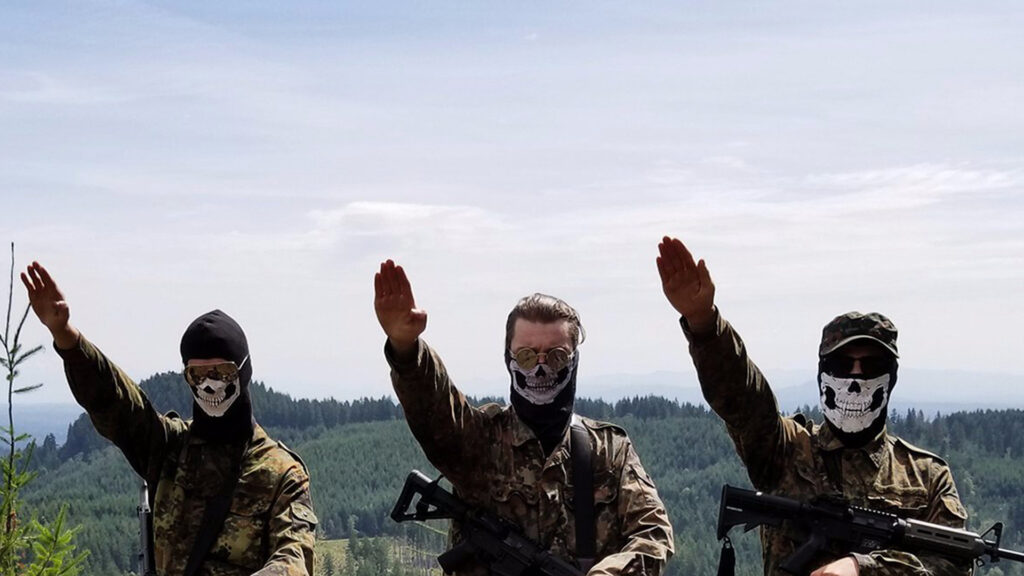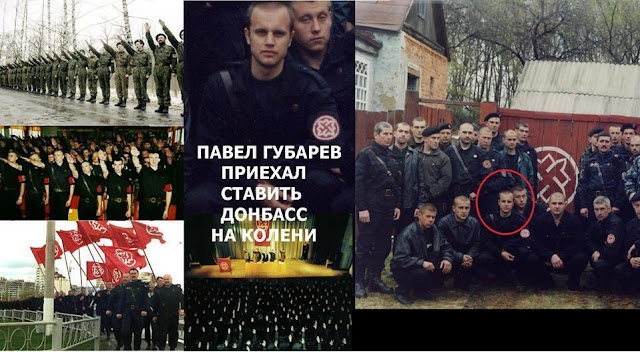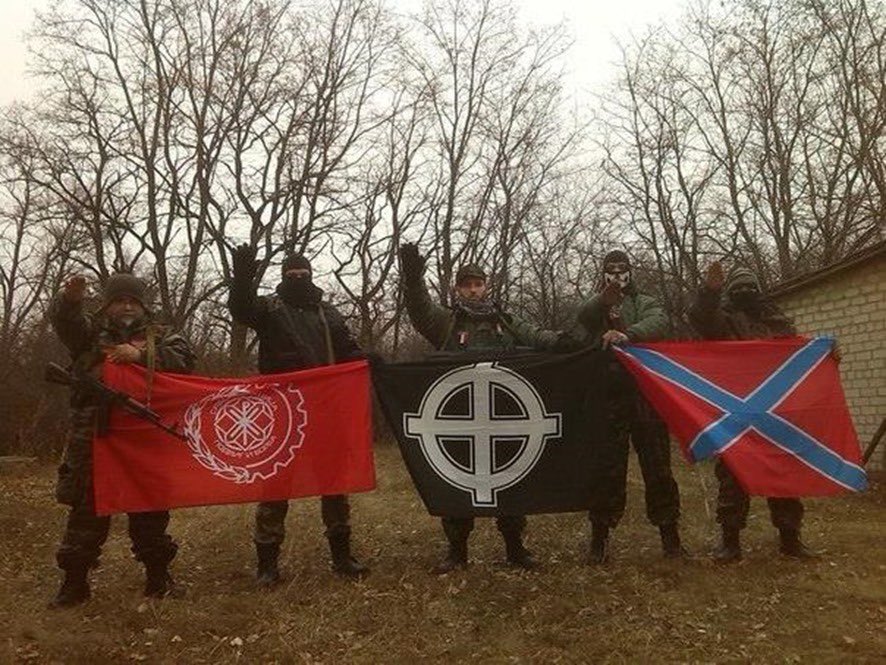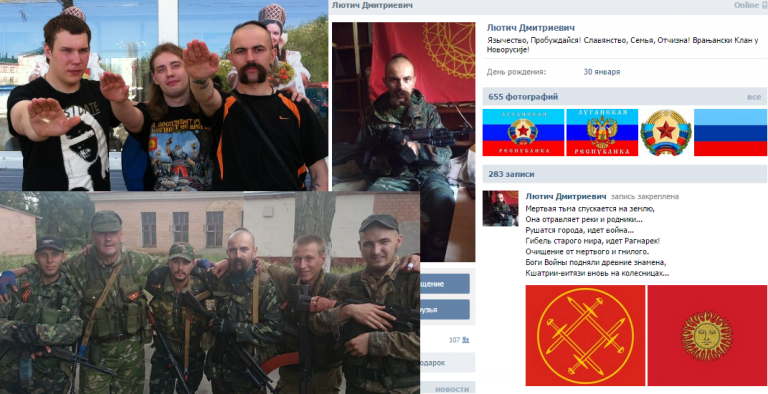Introduction
There is a slice of American right-wing politics that is against America’s continued support of Ukraine’s defense against Russia’s invasion. There are a few common reasons that these people use as the basis of their viewpoint. These arguments are mostly the following: that America cannot afford to spend the money, that we should focus on fixing our domestic problems, that we should not pay attention to Europe since we need to pay attention to China as our main rival, that the outcome doesn’t affect us, and that Russia embodies and defends Western values. We do not need to make humanitarian, moral, legalistic, or emotional appeals to counter these points. We just need to look at what is pragmatically in our own best interests and why.
This situation is not a choice that the USA made. Actions that we did not choose were taken by others but we have choices on how to respond. Supporting Ukraine minimally is a choice. Supporting Ukraine maximally is a choice. Not doing anything and letting events unfold without intervention is also a choice with its own pros, cons, and consequences. There is a cost to us regardless of whether we choose to provide very active support or not provide any support. We can choose to pay a known, limited cost now to stop Russian military expansion and destabilization or, by doing nothing, we can very likely pay a much higher cost later to deal with the negative consequences of a successful Russian military expansion. It is in our own self-interest to pay a limited, controllable price that we proactively control to help Ukraine repulse Russia and deter future Russian conquests of our allies. The ideal case is the USA doesn’t have to spend any money and doesn’t have to deal with any negative consequences, but that is not a choice that has been given to us to take.
Reasons to Support Ukraine
We will need to deploy more high-end weapons like stealth fighters, stealthy cruise missiles, and high-end anti-air defenses to Eastern Europe to deter future Russian aggression. This means we will have less of those high value, high capability, high demand assets to deploy against other potential threats like China. Letting Russia be successful in military conquest through our own self-deterrence incentivizes Russia to continue this successful mode of operations. Having a Russian-controlled Ukraine means an aggressive, successful, undeterred Russia is either closer to or on a border that we would need to defend. If you think that China is America’s biggest threat and that we need to deploy military resources to counter China, then you should support providing maximum military aid to Ukraine in order to stop and deter Russia now and in the future, deter China in the future, and not pull additional resources into Europe from a position of future weakness.
A Russian success in Ukraine would be proof that nuclear blackmail works and is a good, successful policy. Russian government officials have both implicitly and explicitly threatened nuclear retaliation against the West should they not be successful against Ukraine due to Western support. And the West has largely held back military aid and put heavy restrictions on the use of provided aid (no strikes against Russian military targets in Russia using Western missiles, for example) largely due to these threats. This points to two things. The first is that any country with aggressive ambitions (Iran, North Korea, etc.) should absolutely rush to develop its own nuclear weapons. Then, it can threaten nuclear attacks if the international community tries to deter its attacks on its neighbors. The second thing is that no country should ever pursue nuclear disarmament in return for security guarantees. Ukraine gave up its nuclear stockpile, got worthless security guarantees (https://www.rte.ie/news/primetime/2023/0404/1374162-clinton-ukraine/), and in the past decade Russia has invaded and conquered all or parts of 5 of its regions. Seeing this example, no government (good, bad, or ugly) would trade in nukes for worthless paper ever again.
If Russia can keep or expand its territorial conquests, it can deploy its anti-air missile systems in the conquered territory. This allows Russia to cover the airspace of Poland, Hungary, Romania, and Slovakia; areas that they couldn’t reach before (https://www.understandingwar.org/backgrounder/high-price-losing-ukraine). This poses a direct threat to all of Europe in two ways. The first is that Russia can now threaten civilian air traffic over central Europe. The danger of this has already been demonstrated – Russian weapons supplied to Russian-backed separatists in eastern Ukraine shot down civilian flight Malaysian Airlines 17 in 2014 (killing 300 civilians). Russian malignance and incompetence would now spread to cover the heart of Europe. The other threat is military in nature. With Russia being able to put potentially 4 European NATO members under its anti-air coverage, the NATO defensive capability to fend off a Russian attack using air assets is reduced. This weakens security and would require more assets and troop deployments to offset a strategic weakness.
Russia keeping control or potentially controlling more of the northern coast of the Black Sea would threaten all military & commercial shipping and flights in the northern part of the sea. This would weaken NATO military and maritime economic positions and require more direct investment for pro-active defense and force balance.
Arguing that funding Ukraine is unaffordable or that we should focus on China ignores the fact that we would need to invest more than before to deal with the consequences of a weaker security position in Europe.
https://www.cnn.com/2022/11/17/europe/mh17-trial-verdict-intl/index.html
Russian success devalues Western deterrence mechanisms and makes conflict probability go up. For example, will the USA defend Latvia? Latvia has less practical and strategic value for America than Ukraine, but it is strongly tied to us by treaty (NATO, a piece of paper). Western self-deterrence in Ukraine makes it more likely that Russia will think the answer to the defense question is “no” and leads to a higher probability of attack against Latvia.
There will be a direct war if America and NATO respond. There will be a complete collapse of NATO, European and Asian peace, and American credibility and standing if America doesn’t respond. It is much safer, cheaper, and leads to greater peace if through American strength and investment in a positive outcome for Ukraine that Russia is not even in a position where it can reasonable ask the question about whether America will defend a treaty ally. The outcome of this war does matter for America because we can choose to create the conditions for peace or for a more costly war in the future.
A Russian success emboldens dictators and proves their assumption that the West is weak, ripe for attack, and that coercive measure work. For those who are concerned that Ukraine is a distraction for America and we should be focusing on China instead, why do you think that Taiwan, South Korea, and Japan provide aid to Ukraine? It is because of the value of deterrence. Deterrence is less expensive than even the cheapest war. You don’t get a blueprint for peace by showing that you are spineless, directionless, and lack clarity of purpose. You don’t get peace by showing weakness. You don’t get peace by signaling to aggressors that it is very low cost and easy to start an invasion. Showing the world that we won’t stand up to Russian expansion incentivizes China to attack Taiwan. It demonstrates that aggression is rewarded, not punished. It shows that we are feeble and incapable of taking action to defend our own interests. Peace comes through strength and determination. Peace comes by showing potential aggressors that they will be fought off and repelled to a very high extent so they shouldn’t take aggressive actions to begin with.
Edward Hunter Christie states this very well in a recent interview (https://euromaidanpress.com/2024/02/28/russias-gamble-how-and-why-it-could-attack-nato-countries-ex-nato-official-explains/)
“The consequences of a Russian victory would be cataclysmic for the entire Western world.
It would be a very brutal humiliation for the United States and a major moment of dishonor and loss of credibility for America. After supporting Ukraine for two years and ensuring that Ukraine could hold the line, abandoning Ukraine to its fate would be seen everywhere outside America as striking proof that America is finished as a serious power: a country that “fatigues itself” without even fighting due to nonsensical domestic political divisions.
For Europeans, aside from Ukraine, it would be a frightening and demoralizing moment and also a shameful one: to have had the possibility to stop Russia in Ukraine just by supplying weapons and financial support, and to have failed the test of history after having had more than two years of time to develop enough capacity and courage to help.
Importantly, Europeans would also conclude that America is deeply unreliable and the transatlantic relationship would suffer enormous strain. Some elements of it would survive. It is likely that the United Kingdom, for reasons of kinship and history, would make exceptional efforts to salvage its bilateral relationship with America. Continental European nations would generally trust America less, with damage in trust lasting for decades. This would, in turn, be dangerous for European security because it could tempt Putin to test NATO further to see if it could be made to break apart.”
Stretching out the conflict by not adequately investing in Ukraine’s military capability to expel Russia from its territory makes it more expensive in the long term and short term as well. We are funding the operations of the Ukrainian government. The shorter the war, the less that this is required. We will also most likely provide funding towards Ukrainian reconstruction after the war. The longer the war goes on, the more that Ukraine get destroyed and the more expensive this will be. If we would provide the equipment and support needed to achieve military victory ASAP, we would lower our cost burden.
Again, from Edward Hunter Christie in the same interview:
“Imagine this scenario: European members of NATO decide to give Ukraine only half of what it needs because they wish to be better equipped for the possible future scenario of Russia defeating Ukraine and then attacking them. But by giving Ukraine only half of what it needs, European allies are making a Russian attack against them more likely instead of less likely. It is the opposite of deterrence.
The best way to avoid a future large war whereby Russia attacks other European states is to make sure that Russia is defeated decisively in Ukraine as soon as possible. To achieve that outcome, it is better for nations far away from the frontline and from potential Russian attackers to empty out a much larger share of their current inventories instead of waiting. This is a simple problem of optimization over time. The more time we give to Russia, the more Russia mobilizes its defense industry and the more time it has to work with Iran, North Korea, and other hostile states. Ukraine has been paying a heavy price for such hesitations, and the trends are becoming more dangerous, not less dangerous.”
Russian victory would enable Russia to further its energy sector dominance and coercive control over Europe and other countries. The territories that Russia has conquered are rich in natural gas in the Black Sea, coal deposits, and shale oil deposits. Many of these natural resources were discovered only a couple of years before Russia conveniently invaded Ukraine in 2014 to seize them and block their exploitation by Ukraine. Instead of our European allies buying energy and boosting their economies from a friendly Ukraine, they would deal with and become dependent on a hostile and coercive Russia. With this comes the potential that our allies would be drawn closer to Russia geopolitically and America would suffer due to lost influence. This is a double-hit since this also stunts Ukraine’s economic potential by removing those resources from its control. This is bad for America economically and hurts our allies geopolitically and economically at the expense of strengthening and enriching our rival, Russia.
Section 2 (The Role of Energy Security and Investment Protection) of the following report details the energy aspects of the situation: https://www.razomforukraine.org/wp-content/uploads/2016/05/The-Crisis-in-Ukraine-Its-Legal-Dimensions.pdf
There will be a direct impact on western economies through reduced foreign arm sales if Russia prevails through western self-deterrence. 5 of the top 10 arms exporting countries are European NATO members (France, UK, Italy, Spain, Germany). America is the world’s biggest arms exporter, with a roughly 40% market share and Russia is the second largest with a dropping market share. If Russia were to completely prevail, why would prospective buyers invest in Western arms if the West isn’t capable of investing in its own arms for its own use? Why would a buyer spend more money (piece for piece) with the West when Russia, with a ~20x smaller GDP than the rest of Europe, can demonstrate that it can invest in its arms production to defeat the weapons from a lackadaisical Western system which seems uninterested in investing in its own interests and leaves its partners high and dry?
Regardless of their actual or perceived quality, Russian arms will become more attractive since Russia will be viewed as a stronger, more stable, and more reliable defense partner. It will be free to create a perception that Russian arms prevailed over Western weapons. And this will directly impact America’s bottom line and that of our allies.
Selling weapons is also not just about the money. It is a way to establish and grow international ties and partnerships. Will America be better off if our ability to do that is diminished while opening the door for Russia to increase its influence and pull other countries into its orbit through security and arms partnerships?
It is highly improbable, ignorant, and ahistorical to think that a Russian victory or ceasefire will result in peace. In every local (Chechnya, Ukraine, Georgia, Moldova) post-Soviet military conflict Russia has engaged in, it has used ceasefires to rearm and attack again until victory is achieved. Victory has taken different forms. In Chechnya and Ukraine, it has been a straightforward conquest. In Georgia and Moldova (and Ukraine since 2014), it has been through establishing, arming, and funding separatist regions to destabilize those countries, exert political influence, and use those territories as springboards for later military conquests.
https://en.wikipedia.org/wiki/War_in_Abkhazia_(1992%E2%80%931993)
https://en.wikipedia.org/wiki/South_Ossetia_war_(1991%E2%80%931992)
https://en.wikipedia.org/wiki/Transnistria#Transnistria_War
This is not theoretical or atypical for Russia. The same thing could be happening right now with the situation in Moldova. This is how Russia’s 2008 invasion of Georgia started and how Russia’s 2022 invasion of Ukraine started. If the opposing team keeps running and scoring on the same play over and over again, you would hope that your coach would eventually recognize it and come up with a counter strategy instead of hoping that they don’t score this time.
The most likely outcomes do not lead to more peace and security for Europe. We can see the effects of ignoring Russian belligerence over a period of several decades. It gets progressively worse and more costly. How much does it cost us now because we did not do anything in 2014? And how much will it cost us later to prevent outcomes we don’t want if we don’t spend adequately now to lower the possibility of those situations? If you care about America spending its money in a restrained and responsible manner, then it is clear based on history we need to make an investment now to prevent a much more costly situation in the future.
Russia cannot be trusted. If a Russia-appeaser thinks that giving Russia what it wants now and signing a peace treaty/ceasefire will lead to some economic boon, greater prosperity, and peace, they are ignorant of the history and just kicking the can down the road instead of dealing with the problem in a sustainable way. You get the “forever war” that you hope to avoid by incentivizing further aggression.
Russia cannot reasonably be expected to abide by any piece of paper it signs.
- Russia broke its promises in the Budapest Memorandum to respect Ukraine’s integrity.
- Russia ignored its obligations under the Minsk Protocols to withdraw its army from Ukraine.
- Russia broke its promises to withdraw its troops from Transnistria (Moldova), Abkhazia (Georgia), and South Ossetia (Georgia) at the Istanbul Summit of 1999. https://twitter.com/DarthPutinKGB/status/1741406603847290994
- Russia disregarded the inviolability of borders that it agreed to in the Russian-Ukrainian Friendship Treaty. (https://en.wikipedia.org/wiki/Russian%E2%80%93Ukrainian_Friendship_Treaty)
- Russia violated the Intermediate-Range Nuclear Force Treaty (INF) by developing prohibited missiles. (https://www.armscontrol.org/factsheets/INFtreaty)
- Russia is not living up to its commitments under the New START Treaty. (https://www.reuters.com/world/russia-not-complying-with-inspection-obligation-under-nuclear-arms-treaty-us-2023-01-31/)
Russia cannot reasonably be expected to tell the truth about any of its activities, intentions, or a situation.
- Russia lied about not planning to attack Ukraine right before attacking Ukraine in 2024. It claimed it was pulling troops away from the border while it was actually increasing the amount of troops at the border. (https://www.businessinsider.com/russia-claims-no-plans-attack-ukraine-in-coming-days-weeks-2022-2)
- Russia lied about not using its troops or mercenaries to invade Crimea in 2014 for long enough that the useful idiots bought this lie. After some period of time, the narrative switched and they boasted about what a successful operation it was. (https://www.rferl.org/a/from-not-us-to-why-hide-it-how-russia-denied-its-crimea-invasion-then-admitted-it/29791806.html)
- Russia lied about not providing the anti-air missile system to Russian separatists in 2014 that shot down Malaysian Airlines 17. (https://www.euronews.com/2019/06/19/russia-denies-claims-of-involvement-in-malaysia-airlines-mh17-crash)
- Russia lied about not using its own army or arming the separatists in 2014 to invade eastern Ukraine. (https://www.bellingcat.com/news/uk-and-europe/2015/11/13/136-brigade-in-donbass/) (https://www.youtube.com/watch?v=C66mAkS1ZfM) (https://www.businessinsider.com/russian-weapons-separatists-using-in-ukraine-2014-11)
- As a really small and simple example, Russia lied about not having any involvement in downing the American drone over the Black Sea. Until America released the video footage of the Russian fighter jets dumping fuel on and ramming the drone. After the video came out, the Russian pilots involved in that incident were awarded medals from the Russian Ministry of Defense (MoD). For an event where the MoD claimed they didn’t do anything. This is the Russian information space. (https://en.wikipedia.org/wiki/2023_Black_Sea_drone_incident)
- Russia lied and continues to lie about the atrocities its army committed in places like Bucha, even though it is all on video. (https://www.youtube.com/watch?v=IrGZ66uKcl0)
Russia has a history of starting, backing, and funding separatists movements within other countries that it wants to politically control while violently repressing even peaceful protests domestically and abroad (CSTO deployments to Belarus because of election protests in 2020, to Kazakhstan because of protests against fuel prices and corruption in 2022). Russia breaks treaties it considers to be inconvenient. And it blatantly lies about all of this even in the face of contrary video and physical evidence. Any national leader would be criminally irresponsible to his own people to sign a peace treaty with Russia without having some military capability to deal with the consequences of when Russia breaks the treaty.
It is less expensive now to fund the securing of an advantageous peace instead of having to deal with the much more expensive consequences of a potential peace treaty/ceasefire that incentivizes Russia to rinse and repeat. The cost we are paying now versus taking some action 10 years ago is massive.
Reasons not to not Support Ukraine
The “cost” that we are being told that we are paying for military aid is misleading, depending on how it is presented, and it is used in a misleading way to inflate the actual monetary expenditure. There are certainly some net-new items that we are sending to Ukraine and items that we want to replace in our inventory after we send them to Ukraine. Some examples of this are rocket artillery systems and their missiles (aka HIMARS and GMLRS rockets), modern air defense systems like Patriot and NASAMS, brand new systems like GLSDB rockets, and artillery shells. There are also many systems that we have sent that, even though they have some intrinsic accounting value associated with them, are practically not costing us any new spending. Some examples of this are ATACMS missiles for HIMARS, DPICM cluster bombs, Bradleys, Strykers, M1 tanks, and M113 troop transports. The M113s are Vietnam War-era items that have been retired from active service and are all in storage. There is no plan to ever use them again and it costs us millions of dollars per year to store them. If you are concerned about responsible spending, it is more economical to send them to Ukraine than to keep them. ATACMS are a prized asset but there is a replacement missile scheduled to enter service imminently and the oldest ATACMS are actually getting so old that we would need to pay millions of dollars to dispose of them. Sending them to Ukraine is more economical. America has hundreds of Bradleys and Strykers in storage (costing millions) without any plans to use them again. Again, sending them to Ukraine would not be net-new spending. There are other examples of systems that we do not plan to deploy again, like Rockeye II cluster munitions, that we are not sending to Ukraine due to our spineless political leadership that we could send without any net-new cost to us.
https://www.newsweek.com/us-atacms-missiles-cluster-munitions-expiry-date-1857108
https://www.army.mil/article/246274/army_announces_divestiture_of_the_stryker_mobile_gun_system
Another argument that is frequently used is that America should focus and fund its domestic issues first before focusing on a war in a far off place. This is nonsensical and an emotional red herring. Usually the types of issues these people bring up are matters of policy, not funding. The people that focus on the law-and-order aspect will argue that crime is unprecedented, that large cities are out of control, and we are becoming less safe. This is not a function of funding, this is a function of policy. Communities are enacting policies like releasing violent criminals without bail, not prosecuting certain crimes, and pulling out police support from certain areas. All of these combine to reduce the punishment for crime and incentivize more of it. This has nothing to do with military funding and Ukraine. Get rid of local politicians who make bad policies, get rid of those bad policies, and see the effects in action. The border crisis is often mentioned as well. Again, this is a problem of policy, not inadequate resourcing. Border agents just stand there and watch as people stream in illegally over the Southern border. We know what is happening, it is not a secret. They aren’t just standing there because they are lazy, it is because this is the policy from the Executive Branch. In fact, the federal government has sued the state of Texas to stop them from unilaterally arresting and deporting illegal aliens. This has nothing to do with the lack of funding, the people are in place and the knowledge of what should be done is there, it is purely policy. Ukraine doesn’t matter for this, the things we send to Ukraine like artillery shells and anti-radar missiles have no use in the border situation. America can chew gum and walk at the same time, especially when one situation requires money & industry and another requires policy changes.
One particularly laughable reason to not oppose Russia that a laughable slice of the American right-wing bring up is that Russia is actually a defender of Western values. That we should actually support Russia because they have created a society that we should want to live in, one with traditional family values. This is absurd and redefines “Western values” to be anti-gay and trans movements. Russia has laws that are not friendly (and indeed repressive) to those groups and this is in line with general conservative opposition to the broad public normalization of those movements. However, in support of this one very narrow issue, these right-wingers completely ignore all of the other aspects of Western society and mentality that actually underpin conservative ideology and that Russia (both government and society) actively oppose. Does a governmental system run in a consolidated authoritarian way, without free and fair elections, without freedom of speech and protest, without an independent media, without an independent judiciary, without the uniform rule of law and importance placed on individual rights, with a history of murder and imprisonment of political opponents, with a history of political violence, with a state religion that supports a state war, with restrictions on accessing foreign news and social media sound like the embodiment of Western values or like everything that conservatives claim they stand against?
Another aspect raised by some of these “Russia stands for Western values!” idiots is the societal aspect. The family values they claim to love so much are not present at greater rates in Russia. Look at the data for abortions (roughly same rate as USA), divorces (~50% higher rate in Russia), and religious observance (USA is much higher). The argument falls apart. One can also look at the supposed savior of Western values, Putin himself. He divorced his wife and had children out of wedlock with another woman. Fantastic Western family values.
https://worldpopulationreview.com/country-rankings/abortion-rates-by-country
https://worldpopulationreview.com/country-rankings/divorce-rates-by-country
The mascots for this article are Tulsi Gabbard and Tucker Carlson. They are instrumental in pushing a narrative that we shouldn’t support Ukraine because it is actually not a democratic country, that Ukraine shuts down opposition media, and that there is religious persecution there. All of these points are deceptive and designed to emotionally target those without knowledge of the full facts. Carlson and Gabbard are completely full of shit and take their audience to be completely ignorant idiots.
- Religious persecution – The primary religion in Ukraine is Eastern Orthodox Christianity. This branch of Christianity split off from Catholicism 1000 years ago. Unlike Catholicism, Eastern Orthodoxy is not centralized and does not have a single religious or organizational leader. It can be described as being federated. The federation consists of 17 independent Eastern Orthodox churches. They have a common religious theology but are run and administered independently of each other, have their own territory, and each organization has its own leader. Before 2019, the main Orthodox organization in Ukraine, the Ukrainian Orthodox Church – Moscow Patriarchy (UOC-MP), was part of the administrative territory of the Russian Orthodox Church (ROC), one of the top-level 17 independent Eastern Orthodox churches. The ROC is funded and closely intertwined with the Russian government. It is an untenable position for a country to have its primary religious organization run, funded, and administered by a hostile country that is invading it. Russian priests would openly bless and support Russian soldiers fighting in Eastern Ukraine since 2014, the ROC built (in concert with the Russian military) the Main Cathedral of the Russian Armed Forces to glorify the exploits of the invading Russian army, and Russian intelligence agents would get deployed to Ukrainian churches in the guise of priests. How would you feel if your local church was run by priests sent by an invading foreign country? (https://en.wikipedia.org/wiki/Ukrainian_Orthodox_Church_(Moscow_Patriarchate)#Russo-Ukrainian_War_and_changing_allegiances_of_parishes) (https://www.youtube.com/watch?v=FVZT4IwMASU)
To remedy the situation, in 2018, a council of leaders from some of the other Eastern Orthodox churches and leaders from parishes of Eastern Orthodox churches in Ukraine gathered to create a new Eastern Orthodox organization called the Orthodox Church of Ukraine (OCU). This organization was declared to be independent of the ROC and granted its own autonomy. So now Orthodoxy was represented by two roughly equal sized churches in Ukraine, the UOC-MP and OCU. The UOC-MP is considered to be a pro-Russian organization and there is a concerted effort both at a grassroots level and by the government to kick out UOC-MP priests, especially those installed from Russia, and replace them with OCU priests. Both organizations have the same theology, but different ideologies and masters.
There is no religious persecution. There is an internal struggle regarding the administrative organization for Orthodox churches. People can practice their religion as they see fit.
https://www.npr.org/2023/09/30/1201065400/ukraine-russian-orthodox-church-tensions
- Media persecution – Ukraine had a vibrant media landscape with many independent, private outlets. There is a state-run broadcaster, but it was only the 10th most popular TV broadcaster in terms of the percent of the population that watches it. In 2018, the government took action against 3 news outlets. These entities and their owners were connected to Victor Medvedchuk, a close friend of Putin who received millions in funding to further Russia’s agenda in Ukraine and believed to be tapped by Putin to be installed as Ukraine’s president in the event of a successful Russian takeover. Medvedchuk was arrested by Ukraine for treason and then later used in a prisoner swap with Russia to return Ukrainian POWs home. These were organizations that were either funded by Russia or espoused support for the continued Russian invasion of Ukraine. The broadcast outlets were not shut down, they were sanctioned and lost their TV broadcast licenses. They still continued as organizations and could produce content for other platforms. It is not normal that a sovereign country would allow media organizations affiliated with an invading country to operate on its nationally licensed airwaves within its borders. Let’s think back to World War 2. There is a reason why Japanese propagandists “Tokyo Rose” and German propagandists “Lord Haw-Haw” operated from Japan and Germany respectively. Even in countries like the USA and UK, it cannot be expected that media outlets from a nation that you are warring with can operate within your borders.
https://medialandscapes.org/country/ukraine/media/television
https://en.wikipedia.org/wiki/Mass_media_in_Ukraine#Television_broadcasting
https://kyivindependent.com/how-zelensky-administration-moves-to-dismantle-press-freedom-in-ukraine/
https://www.aljazeera.com/news/2021/2/5/ukraines-president-bans-pro-russian-networks-risking-support
To paraphrase a quote from the Al Jazeera article – there aren’t any Hamas funded and run TV stations in Israel.
- Political persecution – After Russia’s invasion, 11 Ukrainian opposition parties, especially those with connections to Medvedchuk, were banned. Doesn’t sound good, but remember the context. The country was being invaded, martial law was declared to help deal with the invasion, in March the survival of the country was not assured, and the invading country was funding political parties to push along its agenda. If you are at war for your survival, it is pretty natural to politically repress agents of the power threatening your survival (https://en.wikipedia.org/wiki/German_American_Bund). Cancelling the presidential elections scheduled for 2024 is also pretty reasonable given the circumstances. How can you have a fair election when millions of your people are refugees abroad, when an enemy has captured your territory and millions of your citizens are trapped and can’t participate, when hundreds of thousands of your people are in trenches and can’t participate, and when the very act of having public voting would be an invitation for Russia to attack concentrations of civilians? If the UK cancelled its elections in its fight for survival against Nazi Germany (Prolongation of Parliament Bills 1940-1944) out of these very same concerns, why can’t Ukraine be afforded the same consideration?
There is one last item to bring up, and this is a favorite talking point coming from Russia. America should not support Ukraine because Ukraine is run by Nazis, and full of Nazis, and everyone there is a Nazi, and they all worship Nazis. Let’s look at some voting results. In an open election with a wide variety of political parties across the entire political spectrum, the ethno-centric parties do exceptionally poorly. They don’t run or control anything. In 2014, the Right Sector party got 1.8% of the vote and 1 parliamentary seat (10 parties got seats) out of 450. In 2019, they lost that seat (10 parties got seats). The Svoboda party won 6 seats in 2014 and won only 1 seat in 2019.
Now let’s look at some not-so-distant history. It is incredibly cynical for Russia to accuse Ukraine of being run by Nazis when it was part of Putin’s playbook in the early 2010s to use a policy called “managed nationalism” to gain political supremacy. Putin’s government funded and controlled multiple political organizations that were fascist, skinhead, ethno-centric, and militantly nationalistic in nature. This was done for two reasons. The first reason was as a violent and political bulwark against political liberals and reformists. The second reason was to split the votes of people who supported fascist/nationalist politics. By creating a government-backed alternative to organic, independent nationalist parties, Putin’s government ensured that those independent parties would never gain enough traction to challenge his United Russia party and also that his people could control the nationalist narrative (https://video.vice.com/en_us/video/putins-secret-neo-nazi-armies/62f3d1b6e7ea5f6f67548ef1). This is chronicled by Robert Horvath in the book Putin’s Fascists. Putin’s government endorsed and allowed Nazi-aligned nationalistic assemblies and demonstrations (https://en.wikipedia.org/wiki/Russian_march) and high ranking government officials like Dmitry Rogozin participated in those. Putin claims that Ukrainian independence must be destroyed because it is run by Nazis while he himself funded Nazi organizations within Russia so he could remove political independence from his own people.
Now, let’s look at some Nazis.


Are these Ukrainian Nazis? No. They are Americans in America. We don’t define our country based on some extremist fringe political perspective within our country, especially one without political power or representation. It is intellectually dishonest to do so for another country.
Let’s look at some more Nazis, this time in Ukraine. Who are these people? Ukrainians?





No, as you might be able to tell by the flags in these pictures, these are Russians who invaded Ukraine. Which of these has a greater resemblance to historical Nazism: a democratic country with a Jewish president (and at one time a Jewish Prime Minister) that had the freedoms that a liberal democracy would be expected to have OR the authoritarian country sending Hitler-heiling, swastika-tattooed people to invade and steal the land of another country?
A Way Forward
One of the reasons for frustration by the anti-Ukrainian slice of the American right-wing is that America seems to be sending equipment and money without a real plan, creating a perception that our resources are being put in an endless war black hole. There is some merit to this line of thinking and many commentators have made the observation that America is providing enough military support to prevent Ukraine from an outright collapse while not providing enough and in a timely manner to be effective in pushing Russia out of conquered territory. Look at the historical hesitancy and then the drip-drip of progressively more effective systems like anti-radar missiles, Infantry Fighting Vehicles (IFV), tanks, rocket artillery, longer range ammunition for rocket artillery, advanced anti-air defense systems, cruise missiles, cluster munitions, and hopefully soon fighter jets.
At each step, we said we would not provide such systems and then we would eventually end up providing them in minimally useful quantities (180 IFVs and 31 tanks, especially if it is stuff sitting in storage, from America is more like performative theater rather than an adequate military response) and too late to maximize the effectiveness of those systems. This points to an overall lack of setting a target goal and failure to develop a strategy to achieve that goal. You will never be successful in doing something if you can’t define what it is you want to do. Giving “what we can” for “as long as it takes” to Ukraine haphazardly is not a strategy and doesn’t come with an achievable goal. America’s biggest failure in this situation is the lack of leadership from the Biden administration in defining a goal, providing the tools needed to achieve that goal in the most efficient manner possible, and communicating to the American public on why it is in our own best interests to achieve the goal. Doing just that at a bare minimum would go a long way in the fight over public perception. This is something that some Republican members of Congress have attempted, but is anyone on either side of America’s political spectrum interested in listening anymore?
https://foreignaffairs.house.gov/proposed-plan-for-victory-in-ukraine/
What we are doing now will probably not be enough in quantity, timeliness, or effectiveness to ensure that Ukraine can reclaim its conquered territories and sufficiently deter Russia from further aggression. We need to come up with a clear plan, a way to achieve that plan, and commit to investing in that plan. Otherwise, we invite our adversaries to put is in a much more dangerous, costly, and difficult situation in the future.
